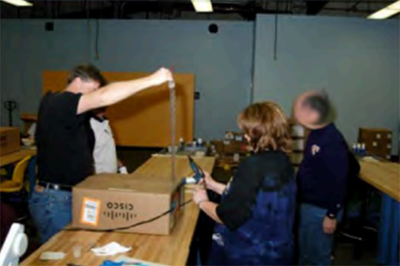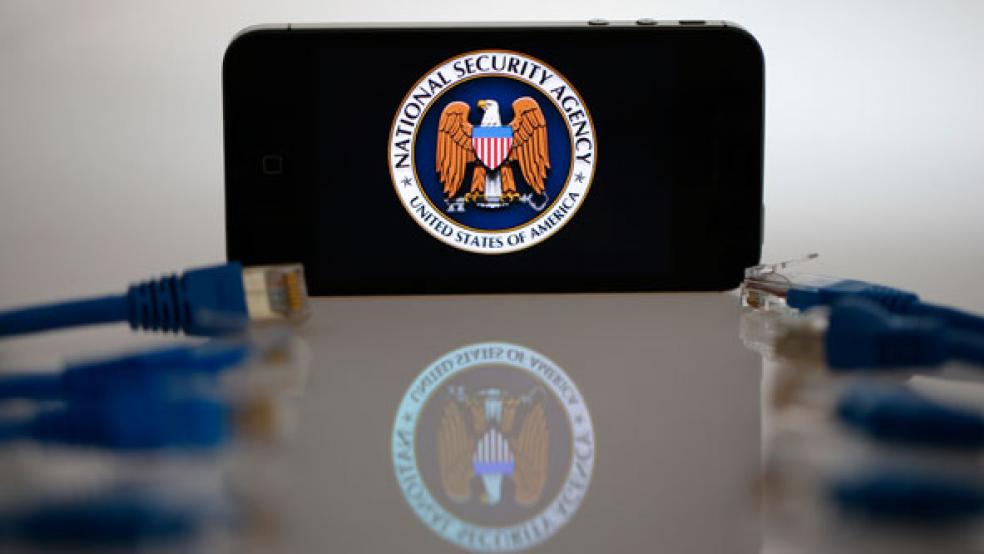The photo released with Glenn Greenwald’s new book No Place to Hide isn't what you'd expect an undercover National Security Agency operation to look like — four people with unimpressive physiques in a low-tech, poorly lit room pulling the packing tape off a Cisco Systems shipping box. Not exactly James Bond, but this shot and an accompanying image reportedly show NSA employees in the process of unpacking a Cisco router that's been covertly intercepted for the purpose of fitting it with "beacon firmware" that will later allow the NSA surreptitious entry.
 |
Photo from Glenn Greenwald's book No Place to Hide: Edward Snowden, the NSA, and the U.S. Surveillance State |
The photos were part of a larger packet of revelatory materials released by Greenwald, the reporter who broke the Edward Snowden story. The fact that the NSA intercept shipments of such equipment wasn’t news, but the pictures were enough to provoke Cisco Chairman and CEO John Chambers to send a letter to President Obama expressing his frustration and concern: “We simply cannot operate this way," Chambers wrote. "Our customers trust us to be able to deliver to their doorsteps products that meet the highest standards of integrity and security.”
Cisco isn't the only tech company making its voice heard on how American surveillance practices may be bad for business. “People won’t use technology they don’t trust," Microsoft's general counsel Brad Smith is quoted as saying on Reform Government Surveillance, a website the tech industry is using to air related grievances. "Governments have put this trust at risk, and governments need to help restore it.”
Related: How Your Smartphone Can and Will Be Used Against You in a Court of Law
On the same site, Yahoo! CEO Marissa Mayer had equally strong words for the president: "Recent revelations about government surveillance activities have shaken the trust of our users, and it is time for the United States government to act to restore the confidence of citizens around the world." And Facebook founder and CEO Mark Zuckerberg chimed in with: “Reports about government surveillance have shown there is a real need for greater disclosure and new limits on how governments collect information."
Cisco makes a good deal of the world's IT hardware. If businesses here and abroad start believing the NSA is routinely tampering with Cisco products, they may stop buying them. In announcing its quarterly results last week, Chambers revealed he thought this very effect was already at work. And if the NSA is getting to Cisco's products, it stands to reason other companies' IT products can be gotten to, as well, which could also put their reputations — and therefore their businesses — at risk.
Related: The One Risk Businesses Worry About Most
And, as the complaints from Smith, Mayer and Zuckerberg demonstrate, it's not just hardware companies that worry about their businesses being in jeopardy due to overzealous surveillance practices.
There are lots of reasons you don't want the NSA rummaging around at will through the world's digital handbag. An unprecedented invasion of personal privacy is one direct effect that's already been thoroughly considered. The potential effect on commerce, which hasn’t caused quite as much uproar, is now another.
Top Reads from The Fiscal Times:





